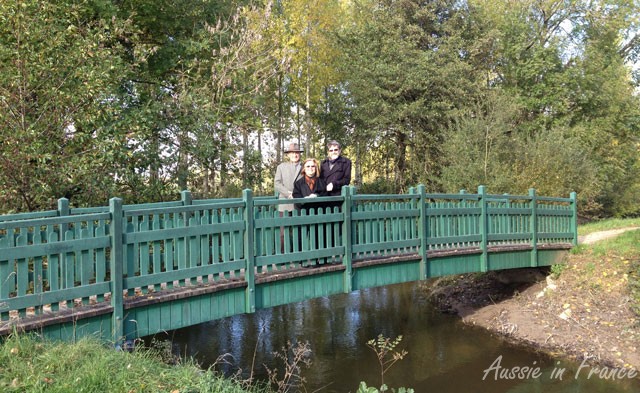Anglosaxons do a lot of walking – well, at least in theory!

We walk to the bakery. We go for a little walk. We walk in the country. We do a 10 kilometer walk. We take the dog for a walk. We walk someone home. We go on a long walk to see a castle. We walk home in the dark.
So, with all this walking, many people look for a verb in French which will be just as handy. Only there isn’t one!
On va à la boulangerie à pied. On fait un petit tour. On se promène à la campagne. On fait une promenade de 10 kilomètres. On promène le chien. On accompagne quelqu’un chez lui. On fait une excursion à pied pour visiter un château. On rentre à pied avec la nuit.
Note that unless you’re walking the dog (or someone else, such as a child or your aged grandmother), se promener is always reflexive.
And have you noticed that, so far, we haven’t used marcher which is what we all learn at school to mean “walk”!
So when do we use marcher?
Let’s go back to the bakery. If I were to say, “I walked right to the bakery”, I could use marcher: j’ai marché jusqu’à la boulangerie. I could also say Je suis allé jusqu’à la boulangerie à pied.
You can use promenade for 10 kilometers if you went at a leisurely pace, but you’d say J’ai fait une marche de trois heures if you want to convey the idea that you were getting a lot of exercise. A 6-hour walk becomes a randonnée. I’m not quite sure though what the cut-off point is!
J’ai les jambes lourdes, je vais marcher un peu. My legs feel heavy. I’m going to walk for a bit.
Il marchait sans but. He walked aimlessly.
Elle marche en boîtant. She limps. You can also say Elle boîte but that would be a general statement and give the idea that it’s something permanent. Subtle, huh?
Il marche toujours à grands pas. He always strides along.
Le bébé marchait à quatre pattes. The baby was crawling. Now that’s a good one! And when baby takes her first steps, elle prend ses premiers pas. She walked at 9 months (yes, one of my did!) = Elle a marché à 9 mois.
Avec elle, il marche sur des oeufs. Literally, “with her, he walks on eggs” but we’d be more likely to say something like “He always treats her with great caution” or “He always skirts around her”.
And here’s an interesting proverb to finish up: C’est marche ou crève! It’s sink or swim (literally “it’s walk or die”).
I’m sure you have some other examples to share.



